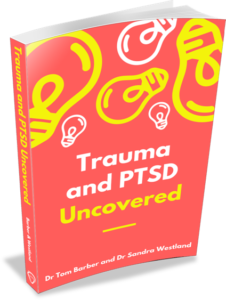Experiencing Anger
Anger is something that is all around us, each day we converse with other people and the world. It’s also an emotion that so many people struggle with and find difficult to experience. Whether it be your own anger or that of others, the experience of its powerful effects can overtake your emotions and lead to words and actions that you later on regret.
With a recent spike in incidents of anger and violence especially in London but also prevalent in other parts of the UK, there is a need to understand more about what happens in this most powerful of emotions. My recent research paper on the experiences of anger in young men highlights the unfolding process of anger, and the four factors that are important to delve into to gain more awareness. The abstract below explains more about the nature of this much needed research into what is described as the ‘forgotten emotion’.
Abstract
Background
While substantial research exists into the personal and social effects of anger, relatively little illuminates young men’s lived experiences with this emotion. Much of this literature focuses on women’s experiences, while few studies have been conducted by clinical practitioners.
Research Aim
The aim of this research was to explore the lived experience of problematic anger in young men from a phenomenological perspective. It sought to provide insights into what angers young men, how anger affects them psychologically, emotionally and physiologically, and what they do when they experience anger.
Method
Qualitative phenomenological research was conducted using semi‐structured interviews with a sample of six male participants between the ages of 20 and 25 years. The accounts were analysed using interpretative phenomenological analysis (IPA).
Key Findings
Three main themes were identified. Theme one explores how participants’ anger impacts both their sense of agency and their physical sensations. Theme two illuminated how anger affects participants’ changing self‐concept, their loss of awareness and control and sense of responsibility for actions taken. Theme three highlighted how participants attempt to regain composure.
Conclusion
This study addresses the paucity of research into the lived experiences of anger in young men. The findings suggest that anger is an intensely dynamic experience that unfolds with a cumulative impact on young men’s ability to retain control over their sense of self, as experienced in time, space, their bodies and relationally.
To view the research paper at Counselling and Psychotherapy Research Journal click here.
Tom.
Author: Dr Tom Barber
Dr Tom Barber is a #1 bestselling author, integrative and existential psychotherapist and coach, speaker, and co-founder of Self Help School, and Contemporary College of Therapeutic Studies. His work has spanned over 25 years, in which he has focussed on helping people all over the world to improve their knowledge and understanding of their psychological worlds. Tom regularly delivers courses and lectures in the UK, USA, Canada, Mexico, and across Europe. In addition, he maintains a private therapy and coaching consultancy, and psychotherapy training college from his base in London.




